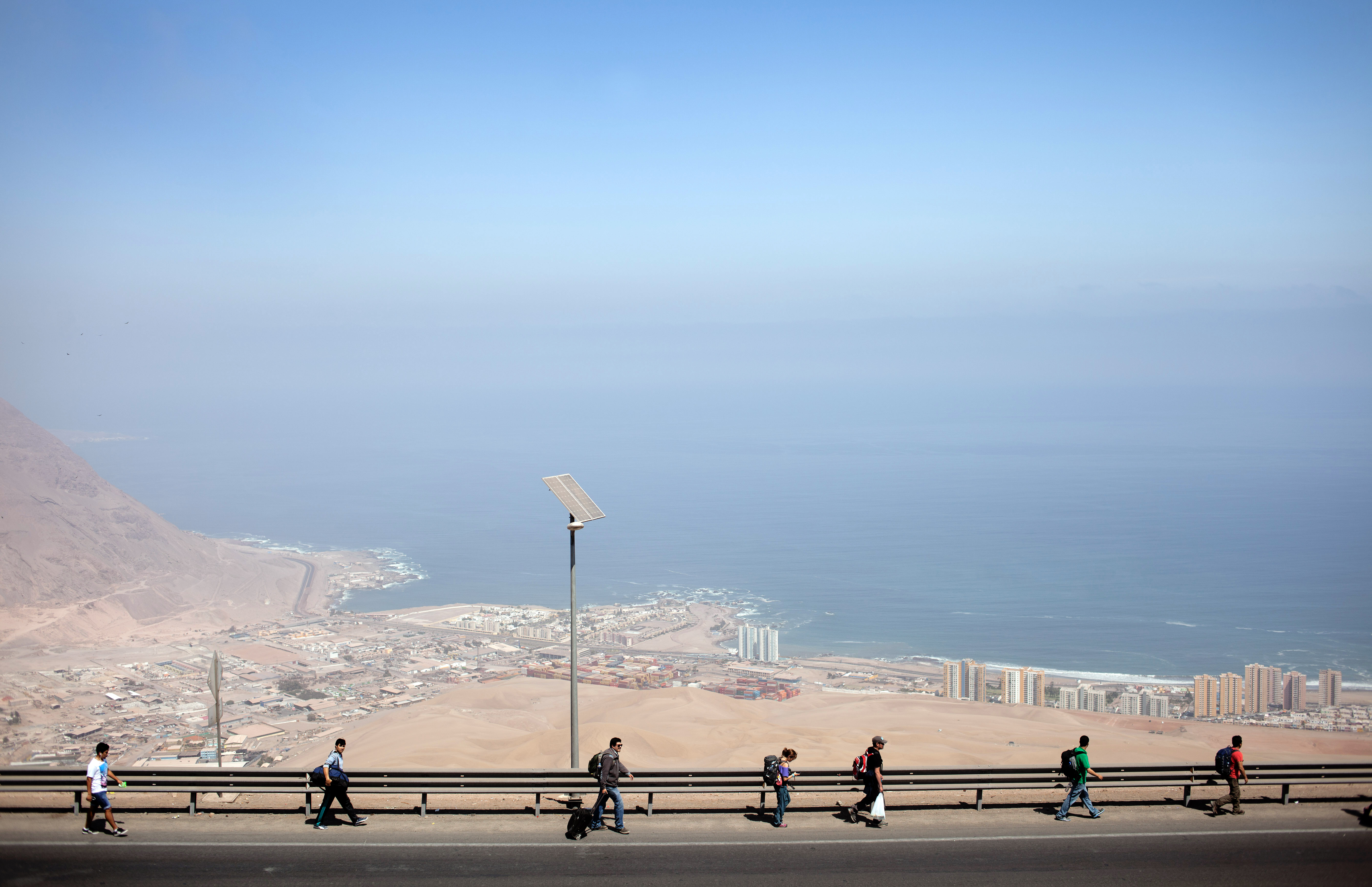World court sinks Bolivia bid for sea access
Bolivia — South America’s poorest country — became landlocked after losing a four-year war against Chile at the end of the 19th century, forfeiting territory and its access to the Pacific coast (Juan Leonel)
The Hague (AFP) – The International Court of Justice on Monday ruled against landlocked Bolivia in a row with Chile over access to the Pacific Ocean that dates back to the 19th century.
Bolivia lost its prized route to the sea in a 1879-1883 war with Chile, and Santiago has rejected every attempt since then by its smaller and poorer neighbour to win back its coastline.
La Paz took Santiago to the top UN court in The Hague in 2013 to try to force it to the negotiating table over the maritime spat, a long-running strain on relations between the two South American countries.
“The court by 12 votes to three finds that the Republic of Chile did not undertake a legal obligation to negotiate a sovereign access for the… state of Bolivia,” judge Abdulqawi Ahmed Yusuf said at the end of a judgement that took an hour and 20 minutes to read out.
The judge said, however, he hoped that “with willingness on the part of both parties meaningful negotiations can be undertaken”.
Bolivia’s leftist President Evo Morales — who has used the issue to boost support at home as he seeks a fourth term in office — attended the court in person for the verdict.
“Bolivia will never give up” its claim, Morales told reporters afterwards. “The people of the world know that Bolivia had an invasion and we had our sovereign access to the Pacific Ocean taken away from us.”
– ‘False expectations’ –
The ICJ was set up after World War II to rule in disputes between UN member states. The court’s findings are binding and cannot be appealed, although it has no real power to enforce them.
Chile and Bolivia have had no diplomatic relations since 1978 when Bolivia’s last major attempt to negotiate a passage to the Pacific broke down in acrimony.
The War of the Pacific pitted Bolivia and Peru on one side against Chile on the other, and saw battles fought in the Pacific Ocean, the Andes mountains and even in the Atacama Desert, the driest desert in the world.
Decades of post-independence border tensions in South America were finally ignited by a dispute over Bolivian attempts to tax a Chilean company mining saltpetre, a mineral used in fertilizer that was at the time replacing the traditional use of guano, the excrement of seabirds and bats.
Chilean President Sebastian Pinera lashed out at his Bolivian counterpart as he hailed the ICJ’s decision.
“President Evo Morales of Bolivia has created false expectations in his own people, and has created great frustration in his own people,” he said in a statement.
“We have lost five valuable years of the healthy and necessary relationship that Chile needs with all neighbouring countries, including Bolivia.”
– ‘The struggle continues!’ –
Morales has weaponised the dispute to boost his popularity at home where the importance of the issue is underscored by the fact that Bolivia still has a navy despite lack of access to the sea.
A small crowd of Bolivian protesters waved flags, played pan pipes and banged drums outside the Peace Palace for the verdict, shouting “The struggle continues!”
“Of course we are sad about the decision. We’re a small country, but we’re not Switzerland or Luxembourg. We need access to export and import our goods,” said Gabriella Telleria, 50, one of the protesters.
“We asked for justice and we didn’t get it,” she told AFP.
Bolivia says regaining the 400 kilometres (260 miles) of coastline along the northern tip of Chile that it lost in the war would stimulate growth and development in South America’s poorest country.
Bolivian activists said the loss of the Chuquicamata mine, the world’s largest open-pit copper mine which is situated in the disputed area, has also badly hit the country’s indigenous peoples.
For its part, Santiago says the border is based on a 1904 peace treaty signed with Bolivia in the wake of the War of the Pacific and therefore must be respected.
Meanwhile, Chile has opened its own case against Bolivia over the Silala waterway, which flows into the Atacama desert and which La Paz has threatened to divert.
Disclaimer: This story has not been edited by Siliconeer and is published from a syndicated feed. Siliconeer does not assume any liability for the above story. Validity of the above story is for 7 Days from original date of publishing. Content copyright AFP.


